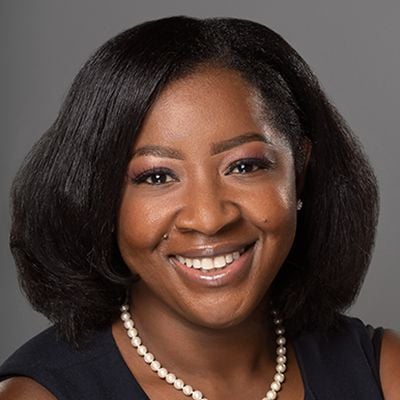In This Newsletter
Partnering with Miami Tech Summit 2024
Artificial Intelligence Policy in Finance and Banking
Digital Asset Policy
Partnering with Miami Tech Summit 2024
The FinTech Program is proud to join forces with the 2024 Miami Tech Summit on April 17 as a Principal Thought Leadership Partner. The program is excited to bring its global thought leaders and impactful solutions to the summit, as we navigate critical tech policy issues facing the US.
The Miami Tech Summit exemplifies the city’s rise as an innovation hub and platform for critical conversations shaping the future of FinTech and beyond, making it a great partner for our mission of connecting people, organizations, and resources to accelerate opportunity.
The Milken Institute will lead an interactive session at the summit titled “Building an Inclusive Financial Ecosystem: Digital Assets, the internet, and AI.” This discussion will gather leading voices in FinTech to explore how financial services, empowered by technology, can unlock greater access, quality, and affordability for all.
Artificial Intelligence Policy in Finance and Banking
The financial services industry has been using AI for decades, just under different names. The 1980s saw the first quantitative traders. The 1990s saw the embrace of algorithms to detect fraud. With today’s advances in technical capabilities, banks and FinTechs are exploring AI in credit decision-making, facilitating compliance and supervision, and customer service applications. Federal lawmakers and regulators are now reevaluating the application of AI, machine learning, and big data in the financial system.
The Biden administration identified principles to inform the design, use, and deployment of artificial intelligence in its Blueprint for an AI Bill of Rights. Building on these principles, the administration published and issued the Executive Order on Safe, Secure, and Trustworthy Artificial Intelligence, which outlined a whole government approach to responsible AI. It included directives to enforce existing consumer protection laws and principles and enact appropriate safeguards against fraud, unintended bias, discrimination, and infringements on privacy from AI as they relate to the financial services industry.
This February as part of the executive order, the Department of Commerce established through the National Institute for Standards and Technology (NIST) the US AI Safety Institute. Elisabeth Kelly, former special advisor to the president, was named as the institute's inaugural director. The institute's mandate is to develop guidelines, evaluate models, and pursue fundamental research to address the risks and seize the opportunities of AI across the economy. The institute will host a consortium of more than 200 leading AI stakeholders to help advance the development and deployment of safe, trustworthy AI. The establishment of a national body for AI safety comes after NIST published its AI Risk Management Framework last year.
In Congress, House leadership established a bipartisan Task Force on Artificial Intelligence this February, Time reports. The task force includes members with a breadth of expertise in AI and the financial sector. One member, Congressman Bill Foster, ranking member of the Subcommittee on Financial Institutions and Monetary Policy, worked as a PhD physicist who first programmed neural networks at Fermi National Accelerator Laboratory in the 1990s. He is focused on how technology like generative AI can be used to create deep fakes and facilitate financial fraud in an interview with FedScoop. Congressman French Hill, Chairman of the Subcommittee on Digital Assets, Financial Technology and Inclusion, leads the House Financial Services Committee bipartisan Working Group on Artificial Intelligence. The working group will examine AI’s use in financial services, the need for potential changes in US laws and the regulatory framework for effective oversight, and issues of global competitiveness.
Digital Asset Policy
Last year, the story of crypto hinged on FTX, but crypto has turned a page in a new chapter. As we enter a new crypto spring, defined by the recent SEC approval of spot Bitcoin ETFs, capital inflow into crypto funds has surpassed their two-year highs, Cointelegraph reports. However, regulatory uncertainty around the digital assets industry remains.
The Clarity for Payment Stablecoins Act of 2023 was referred to the House Financial Services Committee last June and remains the most likely piece of digital assets legislation to move through Congress before the next election. Speaking at the recent Update the System Summit hosted by Coinbase, House Financial Services Committee Chairman Patrick McHenry said that his committee has a workable framework for a stablecoin and that he plans to put the bill on the House floor for a vote as soon as possible. Speaking at the same event, Senator Cynthia Lummis said that she is optimistic about a stablecoin bill’s chances in the Senate and that both Majority Leader Schumer and the Biden administration have signaled openness to a stablecoin bill, CoinDesk reports. Senator Lummis, along with Senator Kirsten Gillibrand are co-sponsors of the Responsible Financial Innovation Act, a digital asset market structure bill in the Senate. A market structure bill is also under consideration in the House Financial Services Committee, which the FinTech Program published a comment letter on last June.
As legislators and regulators develop comprehensive market structures for digital assets, there is a pressing need for an up-to-date universal taxonomy for digital assets so that the public and private sectors can speak the same language. The FinTech Program published a Taxonomy of Digital Assets in 2021, and building on that work, Nicole Valentine has been working with Commodities Futures Trading Commission (CFTC) Commissioner Caroline Pham’s Global Markets Advisory Committee (GMAC) to develop an updated taxonomy. This March, the GMAC voted to publish a first-ever digital asset taxonomy to support US regulatory clarity and international alignment.









